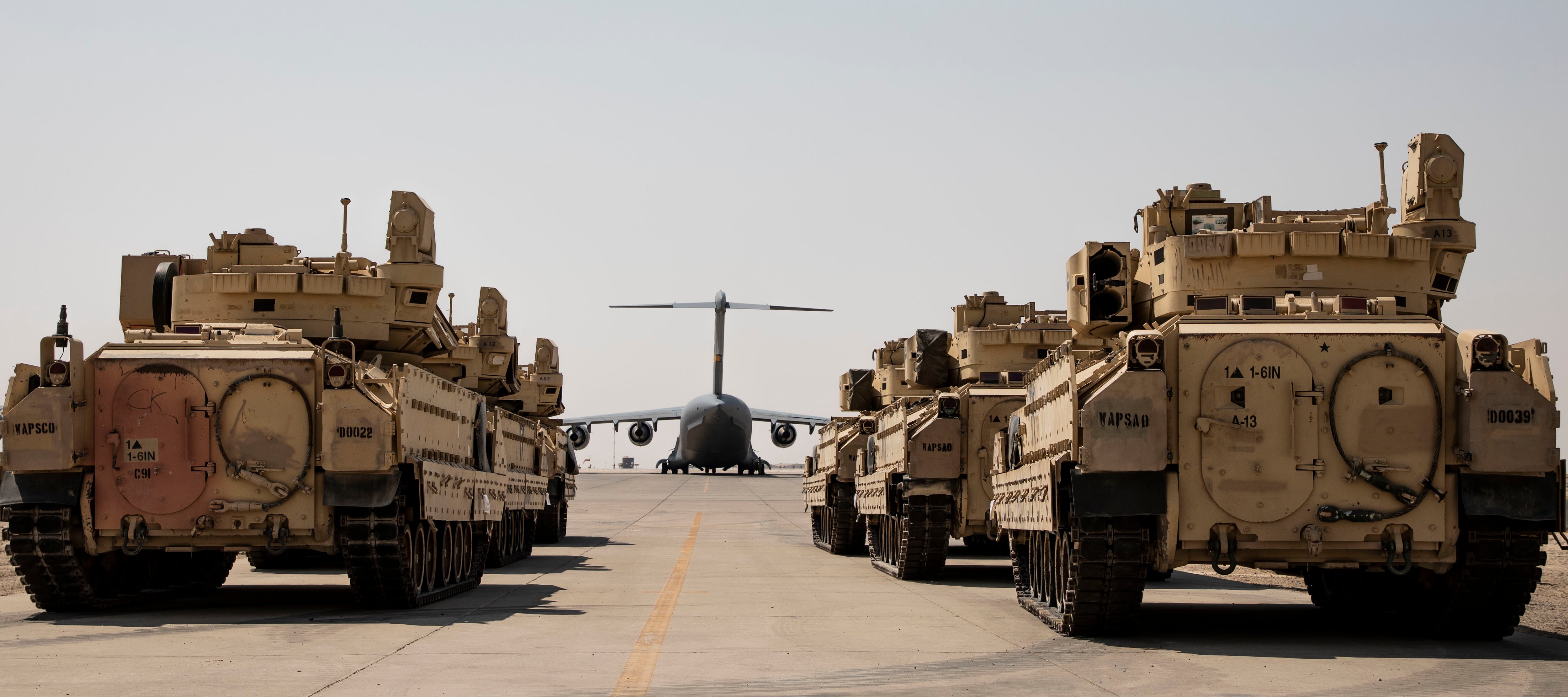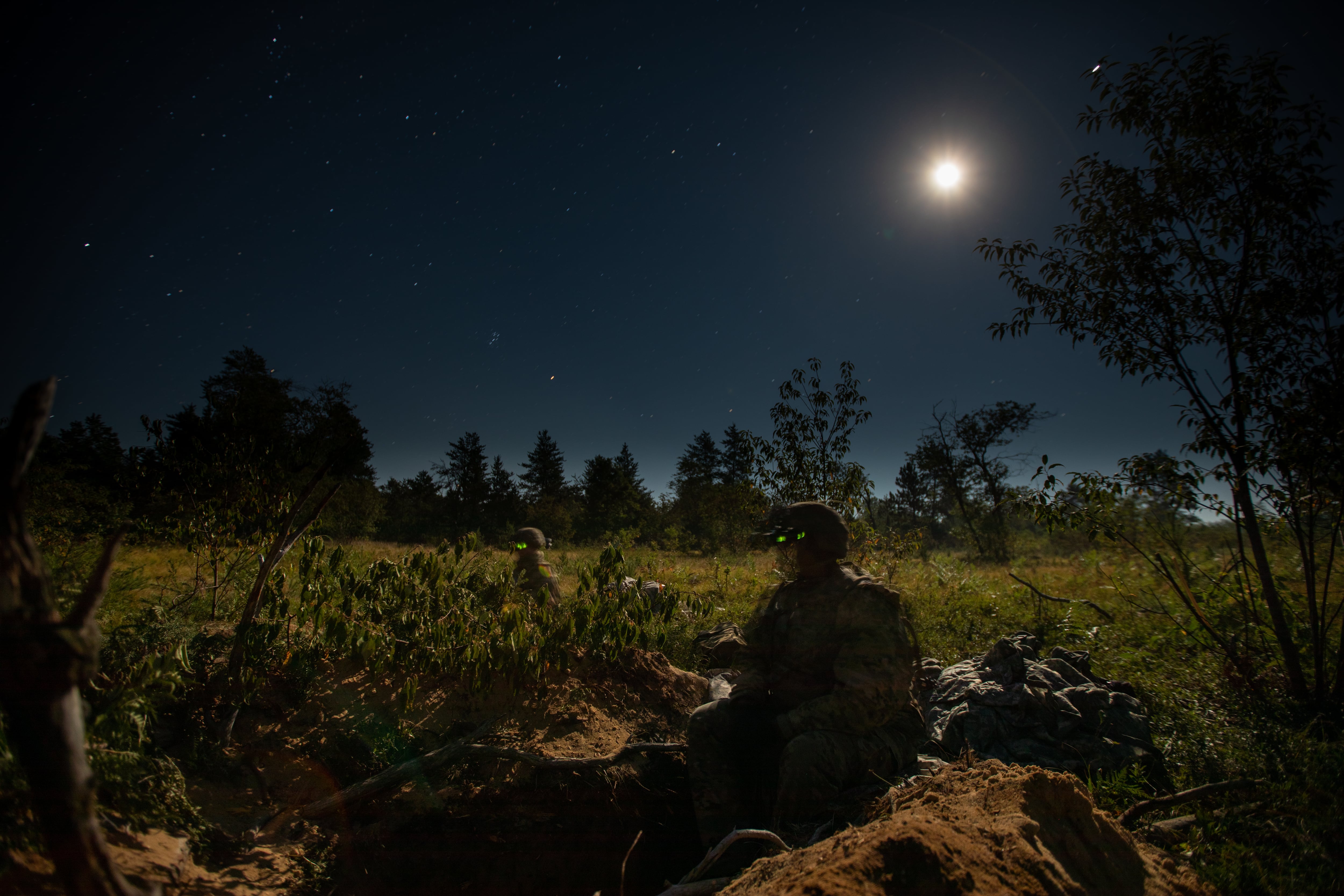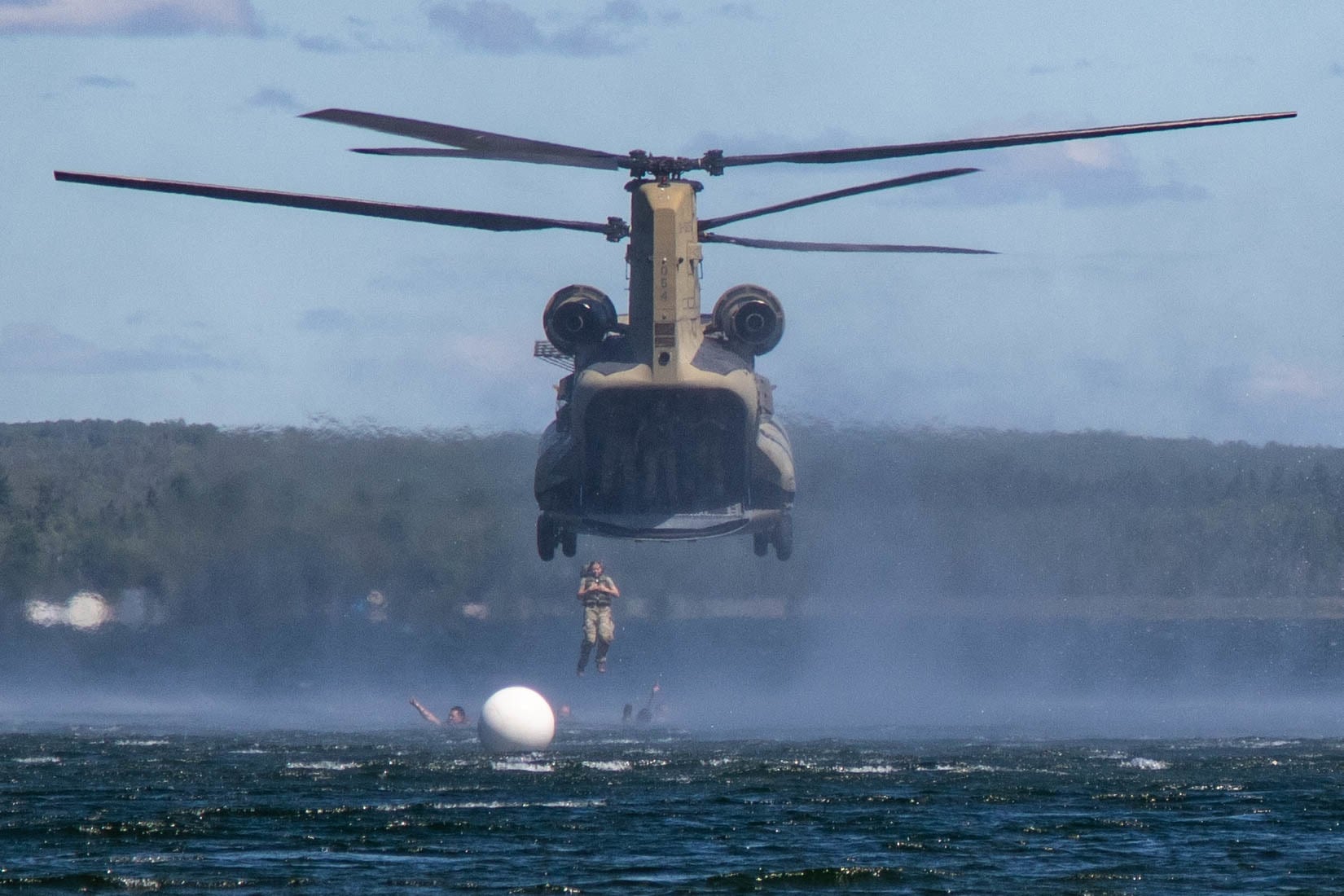Over the past two weeks more than 7,400 troops ran through the National Guard’s largest and longest bi-annual home defense military exercise.
Soldiers, sailors, airmen and Marines combined ground and airpower to beat back a simulated peer threat on the nation’s northern border, specifically northern Michigan.
The exercise began in 2012. But in only the past three years it has dramatically increased the number of participating units and troops. This year’s Northern Strike/Northern Agility exercise saw 7,400 participants. The 2021 version had 5,100. In 2020, there were about 1,000.
This massive exercise involved participants from more than 60 units, ranging from combat arms to dental technicians to firefighters. British, Canadian and Latvian units also worked in the joint force.
RELATED

While the Army Guard does plenty of training across its many units, this year’s version added more airpower options than past versions of the Northern Strike exercise, officials said.
That’s in part because most of the exercise happened at the National All-Domain Warfighting Center that houses both Camp Grayling Joint Maneuver Training Center and Alpena Combat Readiness Center.
“It’s the airspace we have available to us, which is the largest overland military training airspace east of the Mississippi River (17,000 square miles),” said Col. Jim Rossi, Alpena CRTC commander.

Soldiers calling for air support had tactical and operational-level assets to use. For some units, such as the 37th Infantry Brigade Combat Team, out of the Ohio National Guard, this training checked off mobilization requirements they had for joint operations.
Air Force Brig. Gen. Bryan Teff, of the Michigan National Guard, said they used the 217th Air Operations Group out of Battle Creek Air National Guard Base for air support and all-domain operations such as cyber and electronic warfare. That unit augments, or falls under the command of, U.S. Air Forces Europe and Africa.
The Air Guard’s portion of the air side was part of an embedded exercise within Northern Strike, known as Northern Agility.
What the airmen do is place a small air coordination element within the joint force. Those airmen operated out of Camp Grayling, running air across the vast training area and multiple units.
Last year saw major airpower coordination and caught media attention with an A-10 Thunderbolt landing and takeoff on a Michigan highway.
That was more than a photo op. The point of that piece of the 2021 iteration was to see how well A-10 and other aircraft can use an austere highway as a reload/refueling point in combat operations.
This year’s focus shifted to Air Force doctrine known as Agile Combat Employment, officials said.
The ACE doctrine is the Air Force’s way of getting after maneuver warfare on a quick-turn timeline of minutes or hours instead of days or weeks of air planning against a peer threat that can challenge their decades-long air dominance.
It requires Air Force and Air Guard assets to use more than missiles and bombs. They’ve got to combine cyber, electronic warfare tactics such as scanning and jamming enemy radar, using all their tools to deter assets blend deterrence from signals to anti-air to aircraft platforms within tight timelines. This aims to thwart enemy targeting and open options for friendly forces, according to Air Force documents.
The beloved A-10s were back this year but they brought with them B-52 Stratofortresses, B-1 Lancers, MQ-9 Reaper drones, F-35 Joint Strike Fighters, C-130 Hercules and the MC-12 Liberty, officials said. They didn’t all land on highways.
This year brought its own first, with Guard unit members conducting the first-ever joint Integrated Combat Turns on the A-10 Thunderbolt as part of the ACE doctrine, said Army Maj. Gen. Paul Rogers, Michigan National Guard adjutant general.
An “Integrated Combat Turn” is rapid rearming and refueling of a combat aircraft. The idea is to reduce time on the ground and get platforms back in the air to support operations, according to Air Force officials.

The exercise ran ACE work through the Northern Agility portion of the larger exercise at five different airfields at the training center during the two-week event, Teff said.
For Rossi, having both Air Force and Air Guard units working simultaneously with a variety of partners gave each the chance to work across units, platforms and know what to expect if they deploy together.
Down on the ground, the rest of the force had plenty to keep them busy.
Col. Robert Frazer, the head of joint force development for the Michigan National Guard, said work varied widely across the units.
“A day in the life of U.S. Marine mortuary affairs team will differ significantly from a day in the life of the British infantry unit, which differs from the U.S. Army’s water purification unit,” Frazer said.

But the Northern Strike exercise did give the diverse units ways to work an operation together in real-time, Frazer added.
And whatever job troops performed, they had to run it like the real world. That’s because the training center allows planners to use GPS jamming, radar, drones and other new tech both for offensive and defensive scenarios, Frazer said.
While air and ground got their share of attention, and space is pretty much always included when running cyber or satellite-dependent pieces, Michigan’s waterways didn’t escape the scope of Northern Strike.
Troops ran waterborne helocast training on Lake Margrethe, Rogers said.
The two-star called the exercise the Guard’s “marquee” event and the two weeks the “premier tool for shaping our reserve forces into some of the best warfighters in the world.”

Todd South has written about crime, courts, government and the military for multiple publications since 2004 and was named a 2014 Pulitzer finalist for a co-written project on witness intimidation. Todd is a Marine veteran of the Iraq War.





